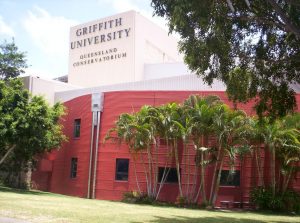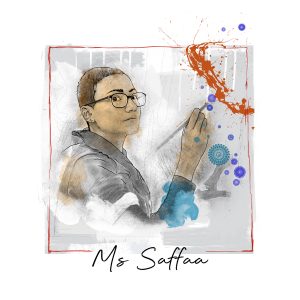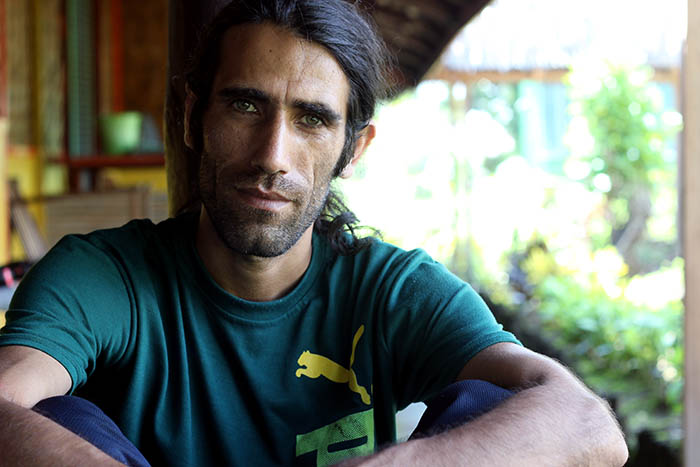Index relies entirely on the support of donors and readers to do its work.
Help us keep amplifying censored voices today.
[vc_row][vc_column][vc_column_text]
The recent AFP raids in Australia highlighted that challenges to media freedom are not limited to authoritarian countries.
It has been reported that since 9/11, Australia has seen the introduction or amendment of more than 75 sets of legislation, many of which may impinge on press freedom. Simultaneously, the debate about journalist and whistleblower protection laws has gained momentum.
But where does the security issue fit into this? While a successful democracy is characterised by a free press, it remains true that there are often good reasons for secrecy and confidentiality. How can we reconcile the conflicting perspectives of press freedom and security?
As part of the Integrity 20 conference, Index chief executive and 2019 Freedom of Expression Award winner Mimi Mefo join a panel of experts to discuss challenges to media freedom worldwide.[/vc_column_text][/vc_column][/vc_row][vc_row][vc_column][vc_column_text]
[/vc_column_text][/vc_column][/vc_row]
[vc_row][vc_column][vc_single_image image=”107111″ img_size=”full”][vc_column_text]Index on Censorship condemns the raid by Australian federal police on the offices of public broadcaster ABC over a 2017 article it ran in on operations of Australian special forces in Afghanistan.
The search warrant named three ABC journalists — news director Gaven Morris, Daniel Oakes, Samuel Clark — and gives police wide-ranging powers, including the power to “add, copy, delete or alter” material in the ABC’s computers. Thousands of documents are being sought by police in the raid.
“The power of this warrant is terrifying,” said Index chief executive Jodie Ginsberg. “Protection of journalistic sources is one of the basic conditions for press freedom – and the huge scope of this warrant puts that at risk.”
The federal police said it was investigating “allegations of publishing classified material, contrary to provisions of the Crimes Act”.
The raid comes a day after the federal police searched the home of Annika Smethurst, a News Corp political editor, over articles she published on plans to expand Australia’s domestic surveillance capabilities.
Last week, the High Court in Belfast, Northern Ireland ruled that warrants against two Northern Irish journalists whose homes and office were raided by police last year were “inappropriate”. Three days later, the criminal investigation into Trevor Birney and Barry McCaffrey was dropped.
Birney and McCaffrey produced a documentary No Stone Unturned, which examines claims of state collusion in the murders of six men. During the Northern Irish raid, police seized documents, personal computers and USB sticks belonging to family members and copied a computer server that contained years of sensitive reporting by the documentary makers, risking endangering confidential sources unrelated to the film.
Index on Censorship and colleagues English PEN intervened in the judicial review of the case, noting the “chilling effect” of such orders, which were “likely to have the effect of intimidating journalists throughout Northern Ireland and further afield.”[/vc_column_text][vc_basic_grid post_type=”post” max_items=”4″ element_width=”6″ grid_id=”vc_gid:1559725317075-72546647-22cf-1″ taxonomies=”6534″][/vc_column][/vc_row]
[vc_row][vc_column][vc_video link=”https://youtu.be/i_eRNjepHBg”][vc_column_text] Ms Saffaa is a self-exiled Saudi street artist living in Australia who uses murals to highlight women’s rights and human rights violations in Saudi Arabia.
Ms Saffaa is a self-exiled Saudi street artist living in Australia who uses murals to highlight women’s rights and human rights violations in Saudi Arabia.
Collaborating with artists from around the world, she often focuses on Saudi women, their individuality and autonomy. She challenges Saudi authorities’ linear and limited narrative of women’s position in Saudi society, and offers a counter narrative. Recently, she has also focussed on human rights and the murder of Jamal Khashoggi.
Part of a new generation of Saudi activists who take to social media to spread ideas, Ms Saffaa’s work has acquired international reach. Through her use of social media and collaborations, Ms Saffaa amplifies her subjects’ voices online, beyond their life on a wall.
“I am my own guardian”, a series of murals she created in 2012-13, made waves in Saudi Arabia and internationally. This was a protest against restrictive guardianship laws that mandate women must have a male guardian’s permission to get married, undertake education, have elective surgery or even to open a bank account. She depicted Saudi women wearing the male Saudi headdress, with banners across their mouths saying: “I Am My Own Guardian”.
In 2016, a conservative Saudi man discovered her work and abused her on Twitter. This sent Ms Saffaa trending. Many activists retweeted her artwork, and used it in a movement protesting against Saudi Arabia’s guardianship laws, which used the artwork as the unofficial logo.
Ms Saffaa has faced online threats, harassment, and in 2017, after an interrogation by the head of intelligence at the Saudi embassy in Canberra, her passport renewal request was denied, leaving her stranded in Australia with a de facto travel ban.
With crown prince Mohammed Bin-Salman’s rise to power, expressing dissent or challenging the Saudi leadership has become even more dangerous. After the murder of prominent journalist Jamal Khashoggi, it is clear that dissidents face repression beyond a travel ban, and regardless of whether they live in the country or abroad.
In 2017, a mural celebrating Saudi women and the 150th day of the “I am my own guardian” movement was vandalised. In 2018, she recreated the defaced artwork with support from Peter Khalil, an Australian Labor MP. The new mural included the work of 10 local and international female artists as collaborators. On the week of International Women’s Day, she created a mural in Sydney to celebrate Saudi women’s resilience. It features two portraits of prominent Saudi activists imprisoned on terrorism charges. In November 2018, Ms Saffaa collaborated with renowned American artist and writer Molly Crabapple on a mural celebrating Jamal Khashoggi that read, “We Saudis deserve better.”[/vc_column_text][vc_separator][vc_row_inner][vc_column_inner width=”1/2″][vc_single_image image=”104691″ img_size=”full” onclick=”custom_link” link=”https://www.indexoncensorship.org/2019/01/awards-2019/”][/vc_column_inner][vc_column_inner width=”1/2″][vc_column_text]
Index on Censorship’s Freedom of Expression Awards exist to celebrate individuals or groups who have had a significant impact fighting censorship anywhere in the world.[/vc_column_text][/vc_column_inner][/vc_row_inner][vc_separator][/vc_column][/vc_row][vc_row][vc_column][vc_basic_grid post_type=”post” max_items=”4″ element_width=”6″ grid_id=”vc_gid:1551786362908-3b759dfe-64e8-9″ taxonomies=”26925″][/vc_column][/vc_row]
[vc_row][vc_column][vc_column_text]

Behrouz Boochani, Manus Island
Manus Island is the location of a controversial detention centre which the Australian government uses to hold over 1,000 asylum seekers indefinitely. It is also home to Iranian journalist and 2017 Index journalism award nominee Behrouz Boochani.
His film Chauka, Please Tell Us the Time, which exposes the realities of life as a detainee on Manus Island, has been selected for the London Film Festival in October after premiering at the Sydney Film Festival in June 2017. Shot with a smartphone acquired in return for his shoes, the feature length film exposes daily life as a Manus Island inmate.
Journalists are banned from the island but Boochani hopes that his film will expose the horrible conditions of the detention centre. He was forcibly relocated there after attempting to seek asylum by boat in May 2013. The Kurdish cultural magazine he wrote for had been raided and 11 of his colleagues were arrested forcing him to flee his native Iran.
Boochani was denied a visa to attend the premiere in Sydney but is hopeful of attending the London screening having written to the High Commissioner of the UK to Australia and the Sadiq Khan, the Mayor of London.
“The London Film Festival is one of the biggest cultural events in England and cinema can make our world more peaceful and remind us that we should care about our humanity and values,” Boochani told Index. “I’m sure the people who are running this festival want to make our world better. I wrote a letter to get a visa to go and share my ideas with people in London and I’m sure that the organisers of the festival and Mayor of London will support me.”
“I hope that more people become aware of this concentration camp and know more about how the Australian government is torturing people in this remote prison,” Boochani added. “I have been working as a journalist and human rights defender in this prison for more than three years and have found that journalism is not powerful enough to tell the history of the suffering in this prison.”
Boochani had been approached in the past about making a film but did not feel comfortable until he spoke to Dutch-Iranian filmmaker Arash Kamali Sarvestan. “Although some directors made contact with me two years ago we could not understand each other,” Boochani said. “I did not want to make a simple movie but fortunately Arash could understand me.”
Making a feature-length film is hard enough, but Boochani had no previous experience. “Arash helped me a lot. We had long conversations every day and talked a lot about the shots and how we can make this movie. I’m a novelist and I think a novelist is able to do any kind of art.”
Boochani hopes his film will also show how Manus Island and its people are being affected by the centre. “A part of this movie is about Manusian people and their culture and how Australia is using this island for its political benefits,” he said.
“This movie is not only for me or Arash but is a voice of 2,000 children, women and men who have suffered under torture for more than four years and we want the world to hear their voice,” Boochani added.
He does not think that it is the current global attitudes towards refugees which are causing mistreatment of asylum seekers. “We should think deeply in a philosophical way about liberalism. Why has liberalism lost its human values? A lot of people died in Manus and Nauru but still, most people in Australia don’t care,” Boochani said.
Boochani describes Australia’s behaviour on Manus Island as a “new kind of fascism” which is “very dangerous to our values”.
Manus Island detention centre was scheduled to close last year after the Papa New Guinea Supreme Court declared it to be illegal. Many detainees now face resettlement in Papa New Guinea but face rising hostility from the locals. Many have been acknowledged as refugees but many still remain informal or waiting to know their status. [/vc_column_text][/vc_column][/vc_row][vc_row][vc_column][vc_basic_grid post_type=”post” max_items=”4″ element_width=”6″ grid_id=”vc_gid:1504690014885-9d831161-78d0-4″ taxonomies=”9020, 9030, 8148″][/vc_column][/vc_row]